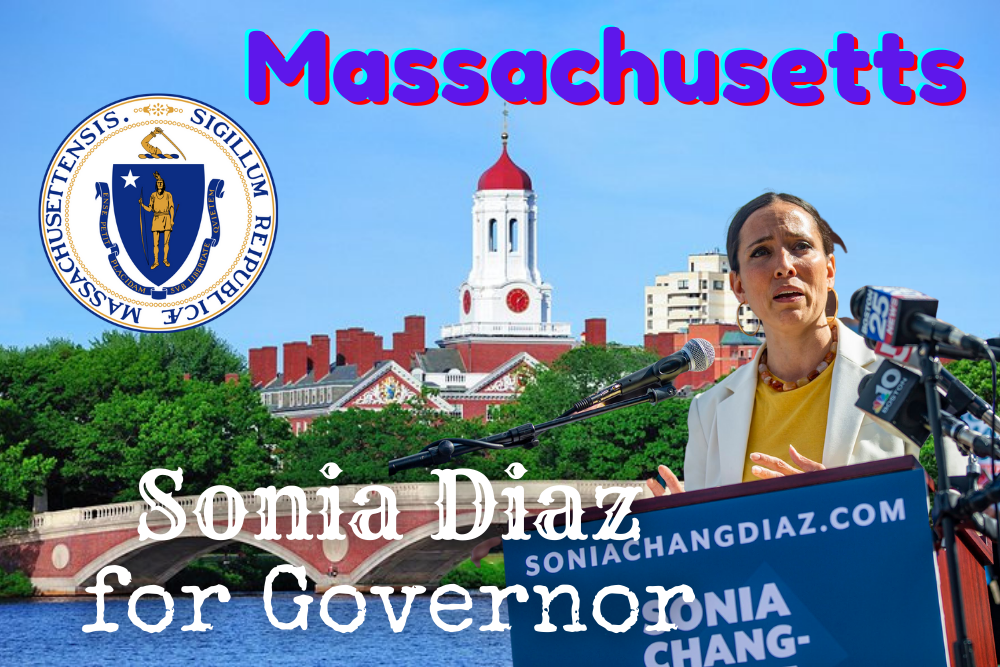Massachusetts will transition to 100% renewable, carbon-free clean electricity by 2030
The future of our planet depends on us eliminating the use of fossil fuels, the burning of which is causing climate change, harming our health, and contributing to environmental injustice. Twenty percent of our state’s greenhouse gas emissions come from power plants that supply our electric grid. To meet our climate targets we must rapidly convert to carbon-free sources of energy to power our electric grid.
The good news is that the price of renewable energy has decreased dramatically over the past decade, which means that electricity generated by renewable sources is now less expensive than that generated by fossil fuels. At the same time, solar power and wind offer not just a more sustainable future, but also an opportunity to build a thriving new industry, create generational wealth in communities of color, and address environmental injustices.
Unfortunately, right now on Beacon Hill, lobbyists from the same big utility companies that profit off of the expansion of the gas system are writing the plan for the future of gas in our Commonwealth. Massachusetts needs a governor who will get serious about transitioning our state to clean energy by putting an end to the creation of new fossil fuel infrastructure in Massachusetts and putting our public dollars into building a clean energy future.
To protect the health of our communities and build a sustainable, prosperous future, as Governor, I will:
Transition to meet Massachusetts’ electricity needs with 100% renewable, carbon-free energy by 2030 by establishing a 100% clean electricity standard for all suppliers in the Commonwealth and working closely with the New England grid operator and other New England states, while investing in the development of clean energy sources through the Massachusetts Clean Energy Center. A combination of onshore and offshore wind and large- and small-scale solar, together with energy storage, is capable of meeting all of our energy needs in the Commonwealth and then some: indeed, estimates suggest that offshore wind alone could generate more than 19 times as much electricity as Massachusetts currently consumes on an annual basis. Massachusetts has all the natural resources it needs to power our future with clean, renewable power, and as Governor, I’ll put our skilled workers, innovative companies and entrepreneurs, as well as the full power of the state, behind building that better future.
Use the full powers of the executive branch to block future fossil fuel infrastructure projects in Massachusetts. Expanding new fossil fuel infrastructure, like new gas lines, at a point when we are actively transitioning to clean energy makes no financial sense for anyone but the fossil fuel industry and utility companies. In addition to slowing us down in reaching our climate goals, it diverts funding that could be used to build new clean energy infrastructure — and future generations will be the one to pay the bill.
Reform the Department of Public Utilities (DPU) to prioritize and expedite our transition to clean energy while protecting low-income consumers and environmental justice populations. Under its current leadership, the DPU has shown itself to be far more focused on protecting the interests of utilities and fossil fuel companies than on rapidly building the clean energy system we need for our future. For example, a recent report revealed that utility companies are on track to spend $20 billion dollars (a Big Dig-level expenditure) on replacing or repairing our natural gas infrastructure that should be phased out — instead of investing it into building the clean, resilient, sustainable energy system of the future.
The DPU, along with other state agencies, must get serious about decarbonizing our state in a way that prioritizes impact, health, and equity. This means that the leaders of the DPU must listen to and collaborate with a broader array of public stakeholders, which includes community leaders, public health experts, and climate scientists — not just utility insiders. It must also consider a wider array of factors in its decisions, including public health and equity — which it is now statutorily required to do thanks to a legislative amendment I sponsored. As Governor, I will immediately appoint a new slate of DPU commissioners who are committed to a progressive energy agenda and who have demonstrated experience relevant to implementing the kind of bold transformative changes that our energy system needs.
Stand with communities that are fighting for a healthier future for their children. For too long, working class communities and communities of color have been exposed to inequitable health risks as a result of disproportionately high concentrations of polluting facilities. As governor, I will aggressively use the regulatory vehicles available to state government — including new tools to protect environmental justice populations written into recent legislation — to block fossil fuel and other carbon-emitting projects (such as burning biomass) that will increase air pollution and other environmental hazards. I also will support reforming the Energy Facilities Siting Board to better protect the health of families in environmental justice populations and to expedite the development of responsibly-sited clean energy projects that reduce air pollution and mitigate climate impacts, while ensuring that any burdens from the new, necessary, electrical infrastructure are shared equitably and do not perpetuate environmental injustice across the Commonwealth. Finally, I will prioritize environmental justice populations as the state invests in new safer, affordable, clean energy technologies, to ensure that those who paid the greatest price for our fossil fuel economy reap the benefits of the new clean energy economy first.
Original source can be found here.


